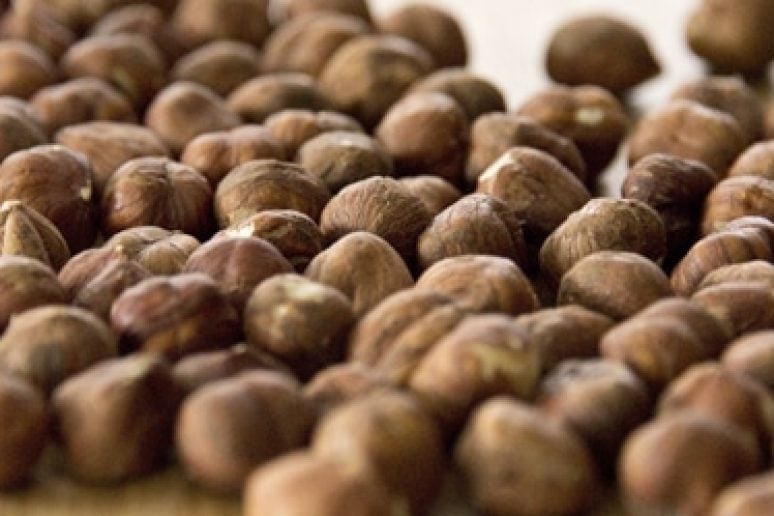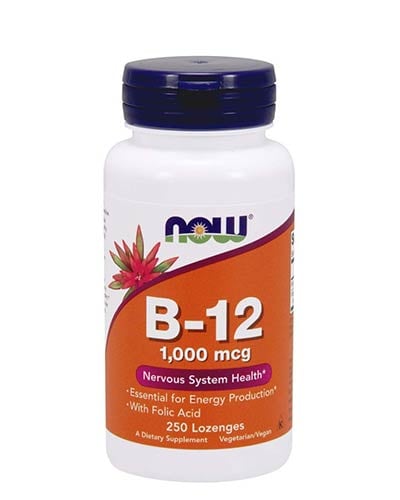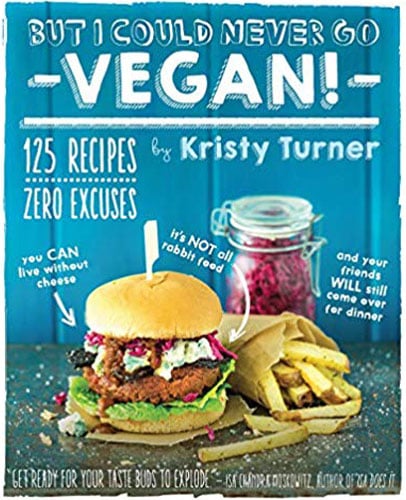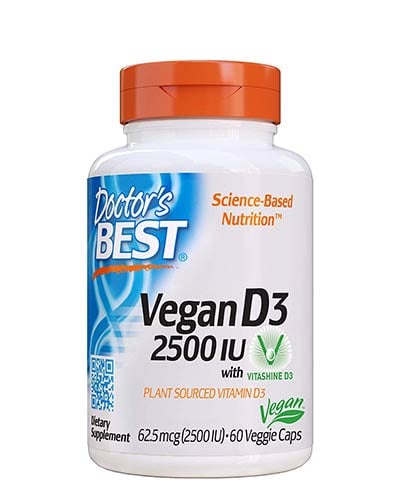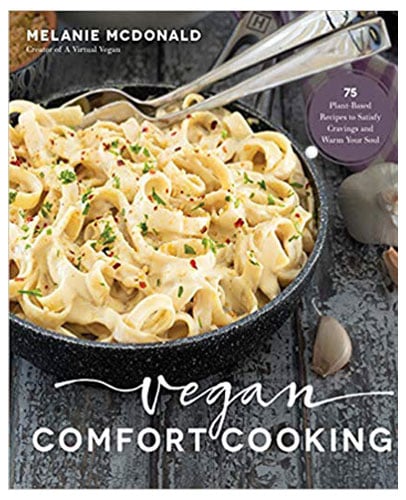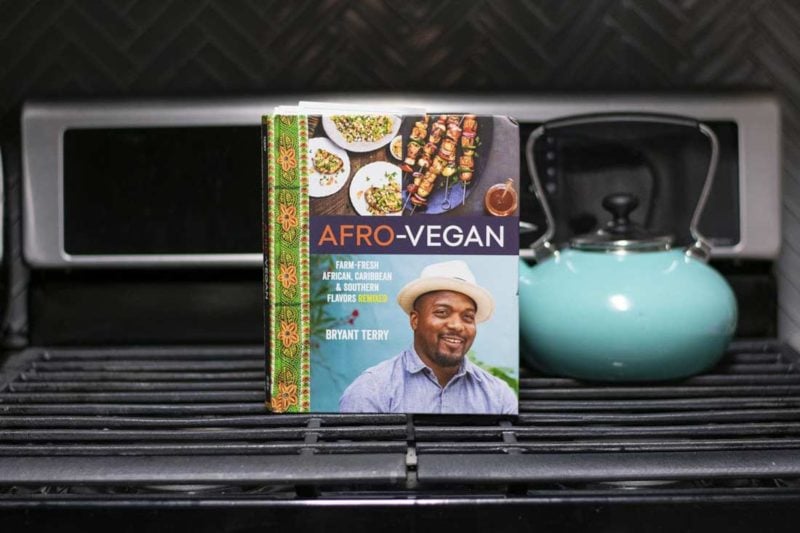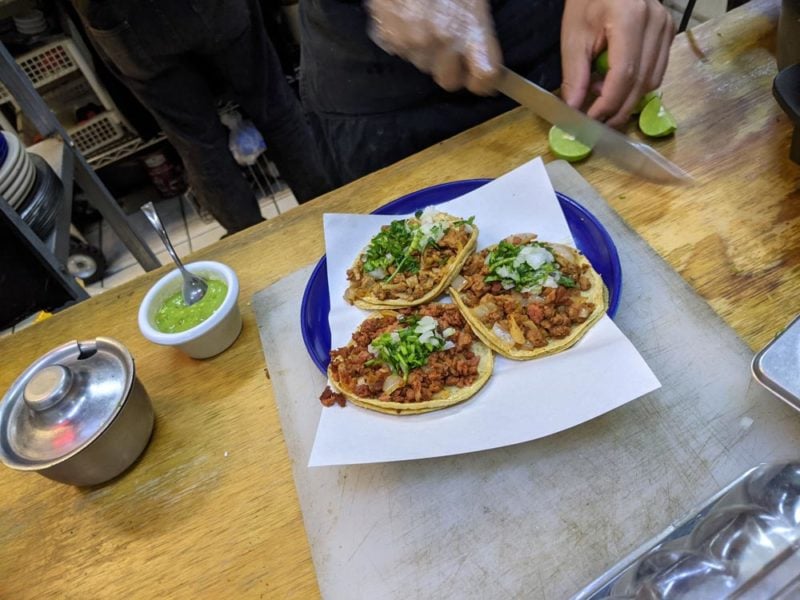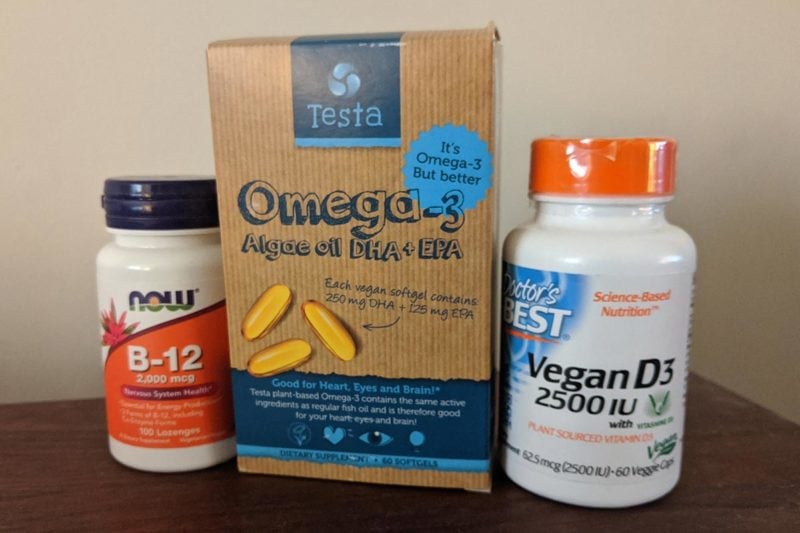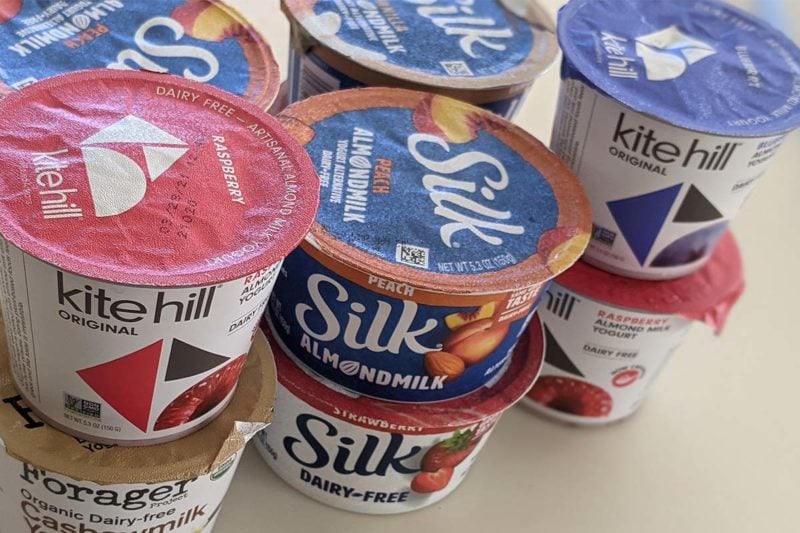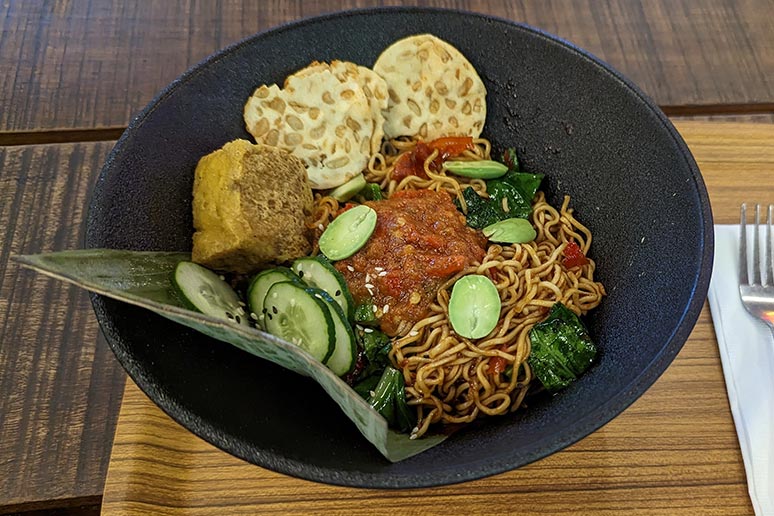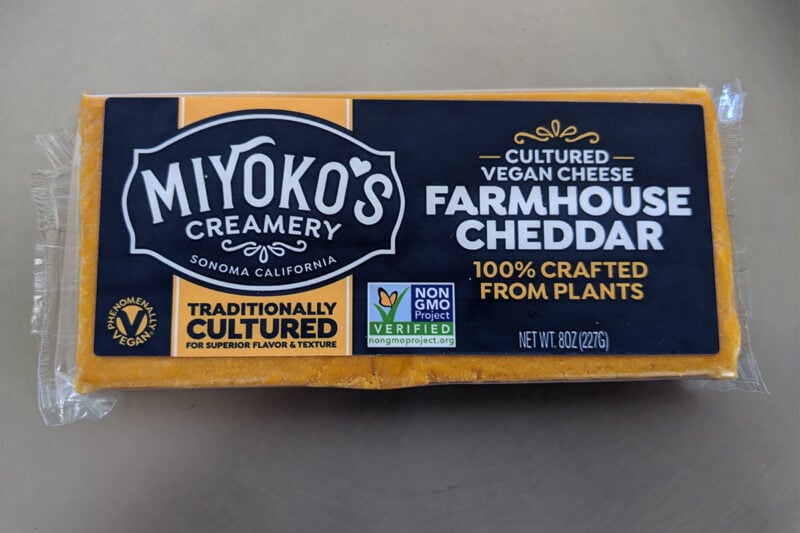Nuts make for a phenomenal vegan snack. They’re a healthy and delicious food that’s sensible to eat every day. They’re also affordable and wonderfully convenient. I love that anytime I want I can walk to the kitchen and pop open a foil bag of crunchy roasted nuts. Each serving provides a concentrated source of nutrients, including protein and healthy fats.
What’s more, a substantial body of nutritional research indicates that regular consumption of nuts is associated with a variety of health benefits. A 2015 Oxford University study concluded: “Men and women who eat at least 10 grams of nuts or peanuts per day have a lower risk of dying from several major causes of death than people who don’t consume nuts or peanuts.”
You can buy all sorts of nuts in all sorts of flavors. I highly recommend Blue Diamond wasabi roasted almonds, perhaps paired with a well-made vegan lager or IPA.
If you want to go cheaper, buy peanuts—by weight, peanuts cost just one-third the price of most other nuts. Yet they’re loaded with protein and a superb snack choice. To get in the mood to write this article, I poured some delicious chili lemon roasted peanuts into a dish, and alongside that I’m sipping an excellent cheap German pilsener. German beers are cool because they’re nearly always vegan, thanks to modern adherence to ancient German beer purity laws.
One of the best and easiest uses for nuts is to chop them for use as a garnish. Chopped almonds are an amazing salad topping, and add flavor, crunch, and satiety to a dish that might otherwise leave you hungry thirty minutes later. Chopped peanuts are likewise a marvelous addition to soups, noodles, and spring rolls.
Common Nut Varieties
The most popular nut varieties are:
- Peanuts (which are botanically not nuts, but legumes)
- Almonds
- Pistachios
- Cashews
- Walnuts
- Brazil Nuts
- Hazelnuts
- Pecans
- Macadamia nuts
Peanuts and pistachios are often served still in the shell. Walnuts are a little labor-intensive to shell and the other nuts are best suited to machine selling.
Eat a Variety of Nuts
If you’re looking to eat more vegan foods, you should definitely try the wide variety of nuts available. Two nuts in particular—walnuts and Brazil nuts—deserve special mention for nutritional reasons. Walnuts are one of the few rich plant-based sources of Omega 3s. And Brazil nuts are one of very few foods that contain significant amounts of selenium, an essential trace mineral.
And of course there are also peanuts, which aren’t actually a but a legume closely related to green peas. Happily, peanuts appear to have the very same health benefits as actual tree nuts. When buying peanuts, choose organic. Farmers often plant conventionally-grown peanuts in rotation with cotton—a crop commonly doused with loads of pesticides.
The Best Ways to Buy Nuts
If there are nuts grown locally to you, you can probably find them at your local farmer’s market. But if you want a wide variety of nuts, you should either buy online or from the bulk bins at your local natural foods store. That’s because even nut-growing regions only produce one or two varieties. Cashews, pine nuts, and Brazil nuts all come from the far corners of the planet.
Roasted nuts go rancid more quickly than do raw nuts, so they should always be stored in the refrigerator. In this respect, roasted nuts are like coffee—just like serious coffee drinkers strive to only drink freshly-roasted coffee, the flavors of roasted nuts rapidly fade. With that in mind, you may decide to avoid roasted nuts sold by your natural foods store as they are invariably weeks or months old by the time of purchase.
Fortunately you can easily roast your nuts at home. If you’ve never done this before, start with almonds. Using a wok and just a few drops of vegetable oil, cook a cup-full of almonds over medium heat, stirring constantly. After five or ten minutes remove one almond and cut it in half. If the white interior has begun to tan they’re about ready. If you like, pour a tablespoon of tamari or maple syrup over the almonds and keep stirring for a couple more minutes as the liquid evaporates. Next pour your almonds onto a plate and let them cool. Finally, once cooled, transfer them to a mason jar. Then seal the lid and refrigerate.
Nut Butters
Nut butters offer another terrific way to add nuts to your diet. While peanut butter is by far the most popular such product, any nut can be ground into butter. Almond, cashew, and hazelnut butter are widely available. Many natural food stores also stock Macadamia nut butter and pistachio butter—both of which are outrageously expensive but sublime. A regular blender won’t be powerful to make nut butter, but a Blendtec or Vitamix can do the job, as will any higher end food processor. Even better is to use a specialized nut grinder or a Champion Juicer with the grinding blank inserted.
Nut butters are good for far more than sandwich spreads—they’re also an incredibly versatile cooking ingredient. If you’ve never had peanut sauce served over noodles or brown rice you don’t know what you’re missing. And peanut sauce is only the beginning of your nut butter cooking possibilities. There are several all-vegan cookbooks solely devoted to nut recipes, including Robin Robertson’s The Nut Butter Cookbook, and Zel Allen’s The Nut Gourmet.
Nut Milks & Cheeses
Nuts can be blended with water to produce creamy nut milks. You can purchase nut milks at the grocery store—almond and cashew are the most common varieties—but it’s quite simple to make them at home using a high powered blender. Unless filtered with cheesecloth or a fine mesh strainer, sediment will form at the bottom of the bottle. That sediment is nutrient-rich though, so shaking before serving is a more healthful option that filtering.
Maybe the most exciting use for nuts is for vegan cheese. Most premium commercial brands of vegan cheese are based on ground cultured nuts. Vegan cheeses are surprisingly easy to make at home, and you can buy an entire cookbook devoted to nut-based vegan cheese.
Don’t Forget Seeds!
The nutritional profile of seeds is remarkably similar to nuts. Most natural food stores sell sunflower seeds in bulk at ridiculously cheap prices—even cheaper than peanuts. Pumpkin seeds have wonderful flavor and are loaded with protein and minerals. Eden makes a superb spicy organic dry roasted pumpkin seed product that’s packaged for freshness in foil bags. As with chopped almonds, tamari roasted sunflower or pumpkin seeds are a magnificent salad garnish.
Hemp, chia, and flax seeds all stand out as significant sources of omega 3 fatty acids. Chia and flax are the richest vegan sources of omega 3s. In fact, it takes less than a tablespoon of ground flax or chia to meet your body’s omega 3 needs for an entire day. You can learn more about these seeds and how to incorporate them into your diet by visiting my omega 3 page.
There are so many delicious ways to add nuts and seeds to your everyday diet, and it would be a shame to miss out on all the flavors and health benefits these foods bring.

